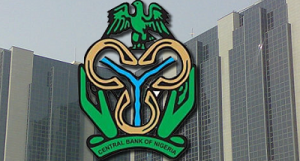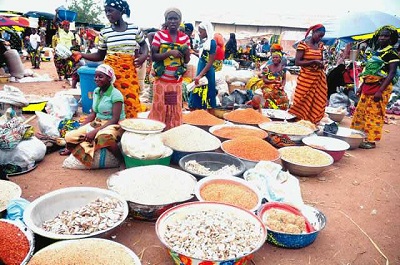Ailing Economy: Why CBN Forex Policy Should Be Reviewed
 A policy is a deliberate system of principles to guide decisions and achieve rational outcomes. Policies are generally adopted to make things better but the foreign exchange policies of the Central Bank of Nigeria (CBN) have brought colossal damages to the economy of the nation as several importers have diverted their cargo to neighbouring ports for ship-to-ship transfer before bringing them into the nation.
A policy is a deliberate system of principles to guide decisions and achieve rational outcomes. Policies are generally adopted to make things better but the foreign exchange policies of the Central Bank of Nigeria (CBN) have brought colossal damages to the economy of the nation as several importers have diverted their cargo to neighbouring ports for ship-to-ship transfer before bringing them into the nation.
CBN’s foreign exchange restriction of some imported items has led importers of such goods to opt for neighbouring ports as they could not finalize Customs clearance due to inability to obtain the Pre-Arrival Assessment Report (PAAR). This is compounding the woes plaguing the nation’s shipping sector and the ease of doing business in the polity which is already rated badly among neighbouring nations.
The Comptroller-General, Nigeria Customs Service (NCS), Retired Col. Hammed Ali, recently attributed the revenue shortfall of the Service to the unfavourable CBN foreign exchange policies. According to the Customs helmsman about N230 billion had been lost in the last quarter of 2015 as a result of the anomaly.
The CG also pleaded for sympathetic consideration by the CBN to review the policies and this shows that he is bothered about the Service meeting the N1trn revenue target given to it by the federal government which accounts for about 16% of Nigeria’s 2016 budget.
Recently the President of Nigerian Ship-owners Association (NISA), Alhaji Aminu Umar also lamented over the CBN policies.
“The Central Bank of Nigeria (CBN) some years back made a policy change when they said that for any importer that wants to process a letter of credit to be able to pay his supplier, the bill of laden for that cargo must not read, “discharge port Lagos” or “load port Lagos”. If it reads “load port Lagos” it will be automatically disqualified from obtaining access to foreign exchange to pay the supplier” Aminu told MMS Plus.
He added that this led Nigerian importers to move to Cotonou and Lome, “We have tried to meet the Central Bank to get them to change this policy. The ships that come into Lome are over 200 vessels in a month, if they had come to Nigeria they would have paid 3% levy to NIMASA which will be about $30, 000 to $40,000 per vessel. When you multiply by 200 vessels per month we are talking about $8,000,000 that NIMASA would have generated. Remember that when these ships come here, they will need water and Nigerians will supply and make money”
It also important to note that these ships will have to do ship –to-ship transfer, require lighterage operations, Chandlers, Tourisms, Hotels and Hospitality, etc, but all these sources of fund and several other revenue possibilities are lost to those in Cotonou and Lome.
If the government is serious about addressing the rampant unemployment across the country by harnessing avenues that create employment and generate more revenue for the nation, then such detrimental policies would have to be revoked as soon as possible. The CBN should look at the policies and rescind it for the interest of Nigeria.
Although there are several factors such as lack of skilled manpower, corruption, etc, attributed to the nation’s failure in actualizing the enormous potentials available in our maritime sector, the current CBN forex policy shows that Nigeria’s maritime industry has equally suffered poor policies.
By Kenneth Jukpor






